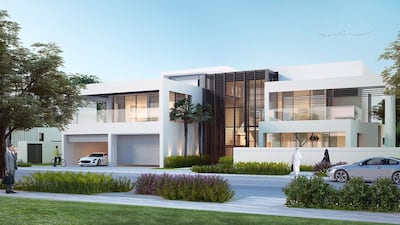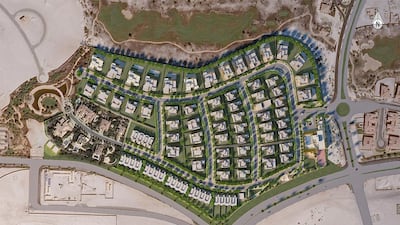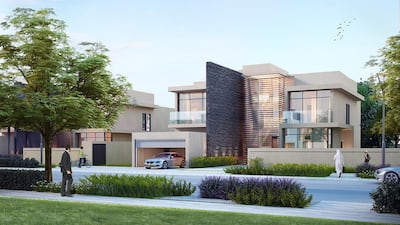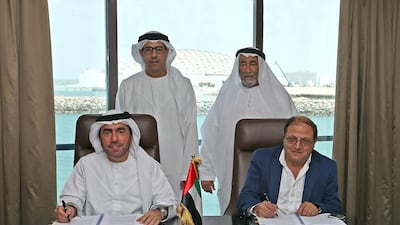Al Jaber Building, the house building division of Abu Dhabi-based Al Jaber Group, has been awarded a Dh370m contract to build the Jawaher Saadiyat villa complex.
Jawaher Saadiyat will be a gated complex within the Saadiyat Beach District featuring 4-bedroom town houses and 4-6 bedroom villas, as well as a community centre with a multi-use games area, a gym and a kids' playground. The project contains a total of 83 homes and was launched during Cityscape Abu Dhabi earlier this year. It will take two years to complete.
The contract was awarded by Saadiyat Island’s master developer, Tourism Investment & Development Co (TDIC). Its chairman, Ali Majed Al Mansoori, said that it had “already received much interest from investors for Jawaher due to its prime location overlooking the Saadiyat golf course”.
The chairman of Al Jaber Group, Obaid Al Jaber Al Marri, said: “Having previously developed more than 7,000 villas in numerous prestigious projects, Al Jaber Building is looking forward to join hands with TDIC to develop another great milestone.”
The villas have been designed by architectural practice DSA, with interiors by Bishop Design.
According to new research by property broker Land Sterling, villa prices at Saadiyat Island experienced a 5 per cent decline in the second quarter of 2016, averaging Dh1,480 per square metre.
mfahy@thenational.ae
Follow The National's Business section on Twitter






